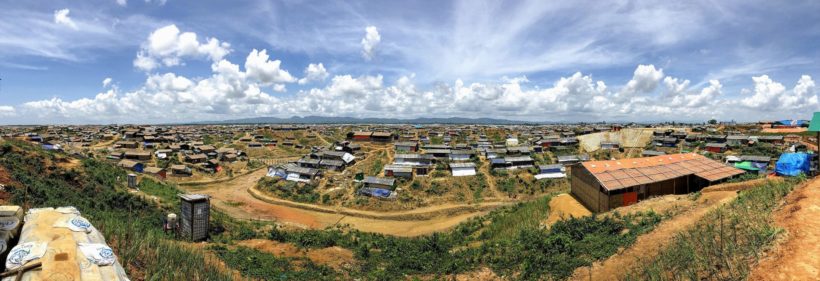by Jubeda Chowdhury
A resolution presented by the OIC and the EU on the protection of the Rohingya was unanimously adopted by the United Nations just recently. This is the first time since the crisis began in 2017 that a resolution on the Rohingya has been unanimously adopted by the United Nations. Observers say the UN recognition is a reflection of the international community’s strong commitment to resolving the crisis. In addition to the EU and OIC, the resolution is supported and co-sponsored by a large number of countries
in various geographical regions, including the United States, Canada, Mexico, Argentina, Australia, New Zealand, Switzerland, Japan, and South Korea.
The resolution primarily focuses on the human rights situation in Myanmar’s Rohingya Muslim and other minority communities, as well as the context in which the country declared a state of emergency on February 1. The resolution called on Myanmar to find out the root causes of the Rohingya problem, fulfill the obligations of the bilateral agreement signed with Bangladesh, and extend full cooperation to all human rights organizations, including the UN Secretary-General’s Special Envoy to Myanmar. At present 11 lakh Rohingyas are sheltered in Bangladesh.
The world community has been expressing solidarity with Bangladesh for the shelter of Rohingyas for humanitarian reasons and urging for repatriation of Rohingyas. Myanmar authorities have agreed to repatriate Rohingya in the face of international pressure. They did not take back the Rohingyas even after two rounds of time. In this situation, as part of regular diplomacy, Bangladesh has raised the issue of the Rohingya crisis in various forums of the world, but everyone is listening quietly, no response or action is seen. Citizens of neighboring Myanmar have been given asylum in Bangladesh for humanitarian reasons. The extra responsibility of this huge number of people is definitely a big burden for Bangladesh. The frustration of the Rohingya is intensifying due to the lack of progress on repatriation, which is creating various security concerns and instability in the region.
There have already been killings in Rohingya camps. Social ills like theft-robbery-robbery are on the rise. The administration has to always be in control of the law-and-order situation in the camps. We hope that this crisis will be resolved soon. A political solution to the Rohingya issue is essential for lasting peace, stability, and security in the region. Our bilateral relations with Myanmar are deteriorating due to non-repatriation. The regional crisis is also growing. The locals are suffering from various problems due to Rohingyas. The only way to resolve the crisis is to send the Rohingya back to Myanmar as soon as possible.
But unfortunately, this initiative is not working. Only pressure from the international community can force Myanmar to repatriate the displaced Rohingya. The diplomatic process with the international community needs to be restarted to put strong pressure on Myanmar to start repatriation.
About the writer:
Jubeda Chowdhury, a lady private tutor in Dhaka city and freelance writer. With a Master’s Degree in International Relations at the University of Dhaka.










